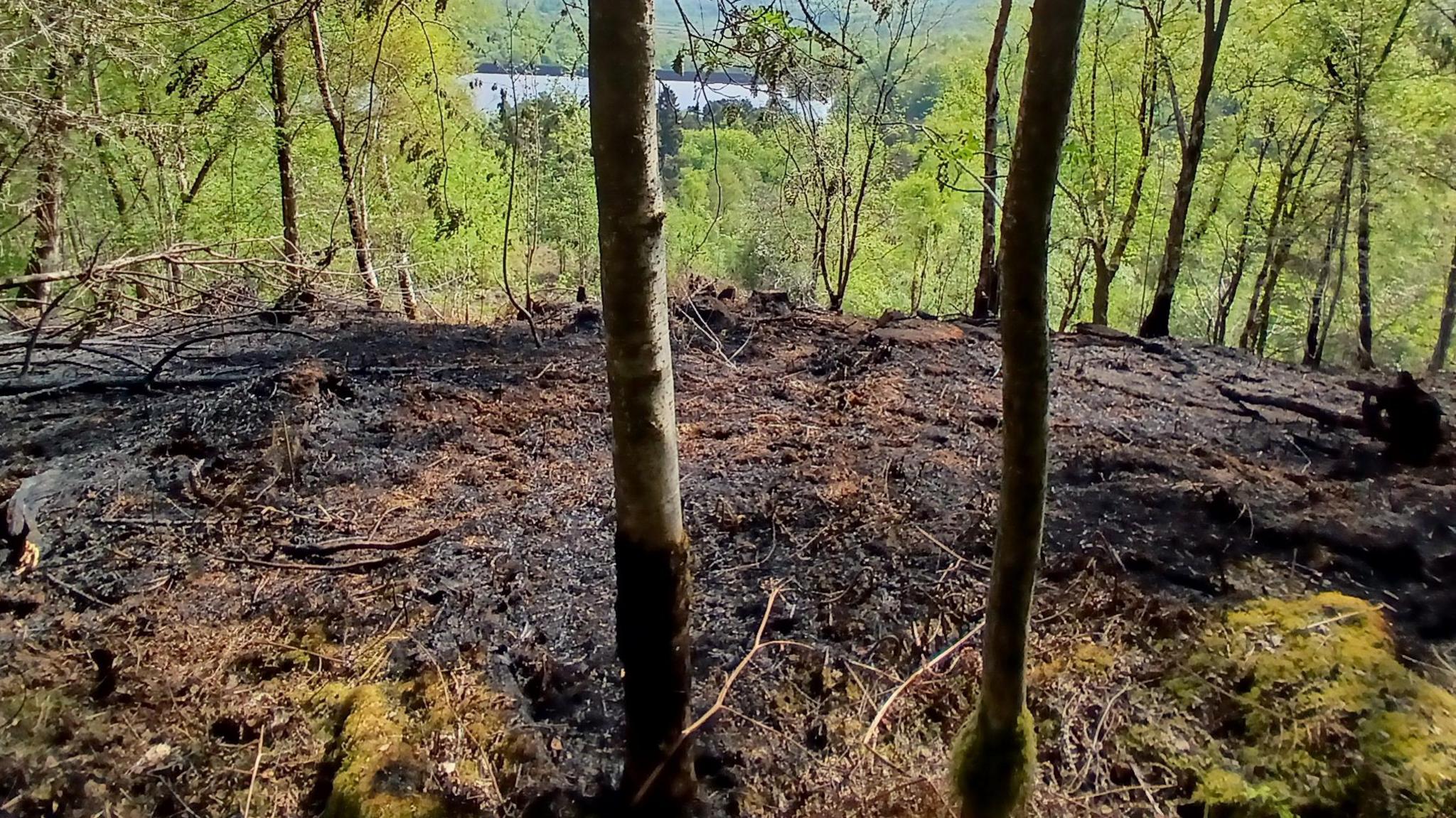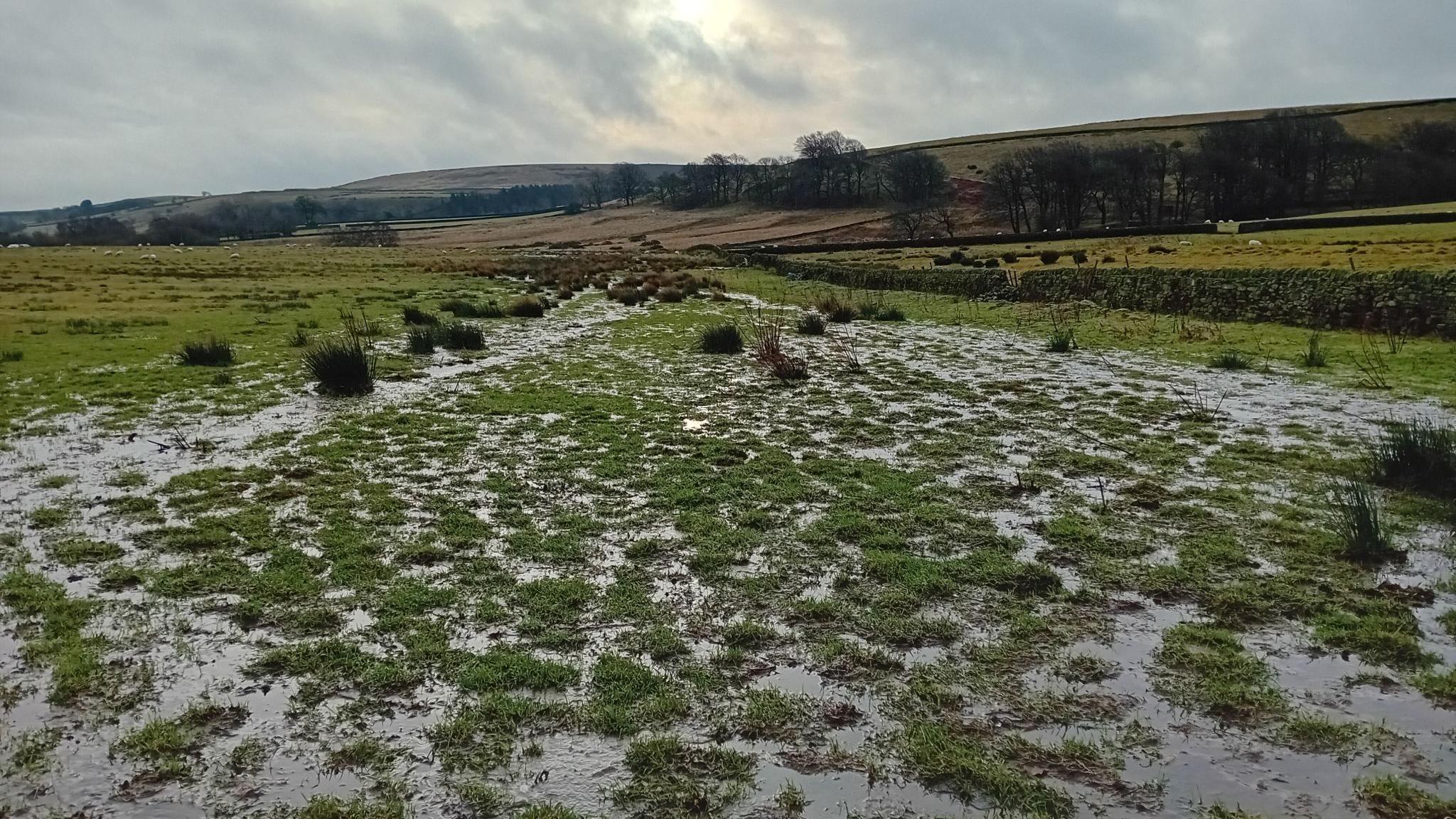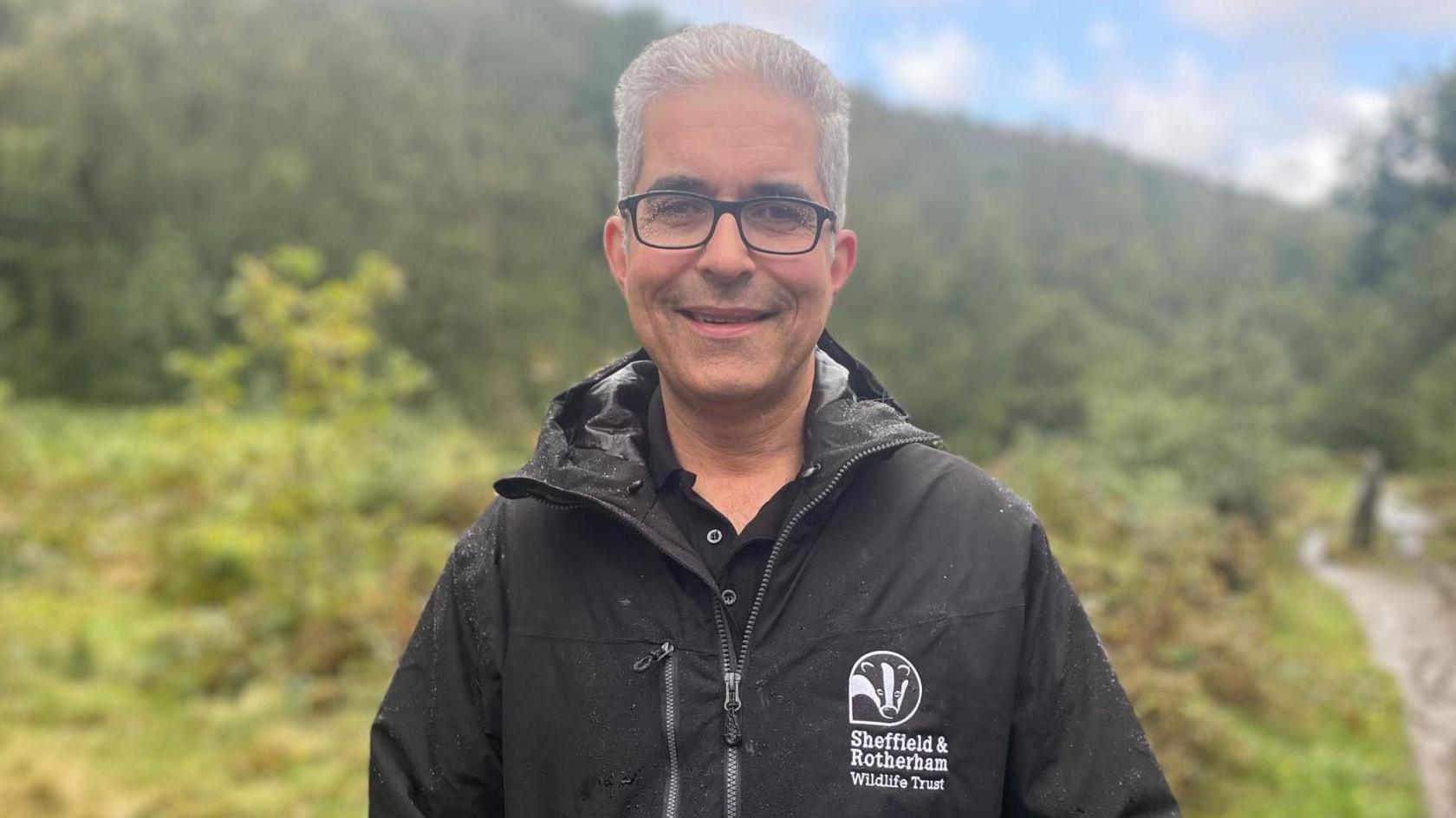Wildfires and dried wetlands due to 'extreme heat'

Aftermath of a wildfire at Wyming Brook, Sheffield
- Published
The UK is "shockingly underprepared" for changing weather patterns caused by climate change, nature trusts have said.
A report from The Wildlife Trusts found extreme heat had negatively impacted local natural habitats, causing wetlands and heathlands to dry out and wildfires to start at reserves in Sheffield and Rotherham.
Nabil Abbas, nature recovery manager, said: "Luckily all [the fires] were caught before doing major damage, but a big wildfire on any of our nature reserves could be catastrophic for wildlife."
The government said it was "determined" to take "robust action" to prepare for the impacts of climate change, for example by building new reservoirs and reducing water leaks.
The Wildlife Trusts called for emergency response plans to be put in place for wildfires, floods, drought and extreme heat, which it said are now "the norm".
Kathryn Brown OBE, director of climate change with the organisation said fires and floods in southern Europe should "sound the alarm loudly" that the UK is "shockingly underprepared for such extremes".
She said the "frightening pace" of climate change was having "worrying" impacts on wildlife and nature reserves.
"The UK government must rapidly undertake a major overhaul of adaptation policy, with increased funding and coordination, in order to tackle this accelerating threat head on," Ms Brown added.

The Wildlife Trusts' re-wetting scheme has provided "critical refuge" for birds affected by habitats drying out elsewhere
The report said persistent dry weather has impacted grazing conservation efforts, where livestock is used to help maintain habitats in order to improve biodiversity, in South Yorkshire..
Mr Abbas said poor grass growth "reduced the time that livestock were able to graze at Blacka Moor and Kilnhurst Ings".
"Water had to be transported to Ughill Farm for livestock to drink after natural springs ran dry," he added.
He said resident lapwings at Woodhouse Washlands had failed to breed after some ponds and ditches dried out completely.
"The extremely dry summer this year has impacted directly on the threatened habitats and species which we are working to protect on our nature reserves."
A government spokesperson said it was "determined to turn around our inheritance on climate resilience and take robust action to prepare for the impacts of a changing climate".
They added that they had stepped in to stop flood defences failing and had launched a decade-long £7.9bn investment programme to improve protection for over 800,000 properties.
"This is alongside helping local communities become more resilient to the effects of climate change, such as overheating, and building new reservoirs and cutting water leaks to help secure water supplies."
Get in touch
Tell us which stories we should cover in Yorkshire
Listen to highlights from South Yorkshire on BBC Sounds, catch up with the latest episode of Look North
Related topics
- Published17 September
